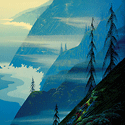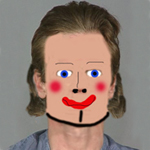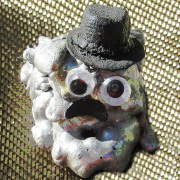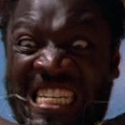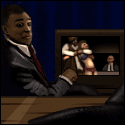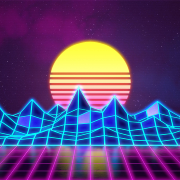|
Manny Calavera posted:How can I tell to what extent a photographer has used post-production to achieve the look of their photos? How do I know if a really good looking photo has only slightly been altered (if at all), when it was the photographer's skill with his or her camera settings that achieved the majority of the quality? Unless it's some kind of photojournalistic photo, what does it matter if it's been altered?
|
|
|
|

|
| # ? Jun 7, 2024 20:22 |
|
Manny Calavera posted:How can I tell to what extent a photographer has used post-production to achieve the look of their photos? How do I know if a really good looking photo has only slightly been altered (if at all), when it was the photographer's skill with his or her camera settings that achieved the majority of the quality? That first set of photos linked he probably cut the saturation of the red/blue channels, heavy increase in contrast, and a gradient/vignette to hold the sky in. The indoor shots were probably underexposed slightly, boosted, then heavily desaturated. Before you worry about your post processing though you need to work on your in camera skills. Good processing can sometimes save a bad photo, but a great photo can stand on its own without processing.
|
|
|
|
Manny Calavera posted:But like I say, I'm finding it difficult to learn from others when I'm not sure how much of what I'm looking at is artificial. The problem is not that post production is "artificial", it's that you lack the visual literacy to tell what is going on in a photograph. Solution: look at a lot more photos.
|
|
|
|
Manny Calavera posted:How can I tell to what extent a photographer has used post-production to achieve the look of their photos? How do I know if a really good looking photo has only slightly been altered (if at all), when it was the photographer's skill with his or her camera settings that achieved the majority of the quality? Post-processing is a big part of a good image but there has to be something there to begin with. Jackpot's images were all pretty drat good to start with so the post is kind of the sauce on top. Learn how to get a proper exposure and, most importantly, what makes a good photo in the first place. Things like composition are far more important than if the image was spilt toned for instance. Learn how to read a histogram and that will help you with both exposure and post-processing.
|
|
|
|
I just opened my Flickr page in Internet Explorer, something I pretty much never do and all my colours are shifted to look like barf. Is this a problem with IE or have I been doing something very wrong when saving images in Photoshop?
|
|
|
|
aliencowboy posted:I just opened my Flickr page in Internet Explorer, something I pretty much never do and all my colours are shifted to look like barf. Is this a problem with IE or have I been doing something very wrong when saving images in Photoshop? I know it's something like "Firefox uses the color profile of the image and IE uses whatever you have Windows set too" or maybe that's backwards. I should know that being a web developer, but really IE is so terrible usually I just say "yep looks like someone could figure out what's on the page" and switch back to whatever other browser I'm developing on.
|
|
|
|
AIIAZNSK8ER posted:Isn't this just image stabilization but in reverse?
|
|
|
|
Manny Calavera posted:How can I tell to what extent a photographer has used post-production to achieve the look of their photos? How do I know if a really good looking photo has only slightly been altered (if at all), when it was the photographer's skill with his or her camera settings that achieved the majority of the quality? This is a bad question. As long as the photographer did the work and didn't outsource it to a 3rd person (and even then it counts if they were heavily involved) the final image was all based on the photographers skill, whether it was done 100% in camera, or with lots of post work. If you like the image, it's because of the photographer's skill, unless your visual language is so stunted you are easily amazed by sliders cranked to 11 (appreciating lovely HDR images, for example). As you take more photos, and do work on them yourself, you will figure out what other artists are doing at what stages. You need this visual vocabulary both to learn, and also to accomplish your eventual photographic vision. I honestly never understand why people feel out of camera images are somehow superior to ones with lots of post work. The camera does almost everything for you in terms of recording the scene. When you go in afterward, you have to have enough knowledge to make those alterations in a believable way, which takes way more perspective, color, volume, anatomy, cloth wrinkle, and compositional knowledge than lifting a framing device to your eye and pressing a button at the right moment. Other forms of art like painting or drawing you have to make LITERALLY everything of the final image. A camera is such an insane jump in rendering realism you have to have crazy skill to alter it in a believable way. It speaks to more vision than just seeing interesting scenes, because you are able to imagine information not there yet when you take the photo.
|
|
|
|
poopinmymouth posted:I honestly never understand why people feel out of camera images are somehow superior to ones with lots of post work. The camera does almost everything for you in terms of recording the scene. When you go in afterward, you have to have enough knowledge to make those alterations in a believable way, which takes way more perspective, color, volume, anatomy, cloth wrinkle, and compositional knowledge than lifting a framing device to your eye and pressing a button at the right moment. Other forms of art like painting or drawing you have to make LITERALLY everything of the final image. A camera is such an insane jump in rendering realism you have to have crazy skill to alter it in a believable way. It speaks to more vision than just seeing interesting scenes, because you are able to imagine information not there yet when you take the photo. I think there is a an attitude in photography of people dismissing things they don't understand or don't know how to do. Like the Straight out of Camera people deride processing as a crutch mainly because they don't know how to use it effectively. I've encountered the same attitude with natural light vs. using flashes/strobes. They don't know how to use the latter so they put it down and act like natural is everything.
|
|
|
|
Paragon8 posted:I think there is a an attitude in photography of people dismissing things they don't understand or don't know how to do. Like the Straight out of Camera people deride processing as a crutch mainly because they don't know how to use it effectively. I've encountered the same attitude with natural light vs. using flashes/strobes. They don't know how to use the latter so they put it down and act like natural is everything. I'll put myself firmly in the 'straight out of camera' camp, and I'll admit that I'm a little bit like how you describe. I feel like post CAN be a crutch for people who don't understand how to properly operate a camera, but I don't feel that way about most people who do heavy post processing. For me it's just easier to be super anal about getting it as right as possible in the camera so I can spend 10 minutes fixing a few things in lightroom instead of several hours. Every photography class I've ever taken has stressed that greater skill behind the camera will save you gobs of time in front of the computer screen later on. When I feel particularly anal about getting exposure correct I go shoot a roll color slide film. V
|
|
|
|
Rontalvos posted:I'll put myself firmly in the 'straight out of camera' camp, and I'll admit that I'm a little bit like how you describe. I feel like post CAN be a crutch for people who don't understand how to properly operate a camera, but I don't feel that way about most people who do heavy post processing. The problem is that it sounds like you (and many others) conflate filters with real post work. There is a difference between applying a setting that makes it Wow! and actually going in and controlling parts of the image, or compositing things in, with knowledge of light and shadow and all the other things required. Conflating the flickr HDR crowd with the type of post work going into a magazine cover is rather silly.
|
|
|
|
It's really about the vision of the final image. You can achieve some things before you press the shutter and some things after the shutter. When I go into an exec's office for a headshot, I move tons of furniture around, open and close blinds, turn off the hideous yellow light bulbs, ect. But then my work is only half done. I've been practicing burning and dodging to (I think) create volume and emphasis on certain parts of the photo. Lightroom presets and tone mapping gave post processing a connotation of an "effect" to be applied. But photographers haven't stopped at the negative since the medium was born. Darkroom techniques are the other half of the game.
|
|
|
|
poopinmymouth posted:you have to have enough knowledge to make those alterations in a believable way, which takes way more perspective, color, volume, anatomy, cloth wrinkle, and compositional knowledge than lifting a framing device to your eye and pressing a button at the right moment.
|
|
|
|
I really would have liked to have seen the before version of the photos in this series. The final products are quite delightful. http://www.alaindelorme.com/?p=works&ga=totem Stolen from the Awesome Pictures thread. As far as knowing the things you can do with processing, a lot of practice builds that up over time (as stated already). I generally spend a lot more time editing my portraits than I do my landscapes, and looking at all the subtle differences that really add up when they come together is quite rewarding. Something to keep in mind is that most editing is going to be limited to a few categories: Exposure, Color, Sharpness, Contrast... obviously that can be broken down into a lot more but those are some things to think about when looking at a photo.
|
|
|
|
Straight out of camera is fine, but if you plan to print, you need post, period. Personally, I find that even when I nail exposure, curves or levels can always be played with to increase contrast and my overall liking of the image. Also, I shoot heavily with a Sigma 30 1.4 which vignettes heavily wide open unless you apply lens corrections. Finally, if you do print, at a minimum you need to match to your printer color profile, adjust curves and levels for the reduced contrast print has, increase saturation if necessary, downsize if necessary and then sharpen sharpen sharpen!
|
|
|
|
Rontalvos posted:Every photography class I've ever taken has stressed that greater skill behind the camera will save you gobs of time in front of the computer screen later on. Greater skill behind the camera lets you plan the post production, so then you're not "fixing" the image you're just "finishing" it.
|
|
|
|
Post is just gravy. It can't fix an image but it can make an already good image a great one. Too many people these days with the "I'll fix that in post" mindset, when 5 seconds of fixing someones hair will save 15 mins in post.
|
|
|
|
I used to be the type that frowned upon any sort of post processing as not "real" or genuine or whatever, but that's definitely not the case anymore, and after reading a few comments, it's definitely thanks to looking at lots more photos and developing a visual literacy, as well as increased practice working on my own photos. I still don't often do much more than crop/levels/dodge/burn/sharpen, but even with just those light tweaks I can make images really pop nicely that otherwise wouldn't have straight out of camera. Totally corny and cliche, but it's Ansel Adams so gently caress it: "The negative is comparable to the composer's score and the print to its performance. Each performance differs in subtle ways." Alternately: "Dodging and burning are steps to take care of mistakes God made in establishing tonal relationships."
|
|
|
|
I'm trying to put together a photo book for a Christmas present and all the sites I've tried have fixed aspect ratios and just crop of the sides of any photo not in 8x10 ratio. The only fix I can think of is to add black borders to the shots to make them all 8x10 before uploading them, but this is a royal pain when working with 50-60 photos. Is anyone familiar with a way to do this as a batch edit?
|
|
|
|
BeastOfExmoor posted:I'm trying to put together a photo book for a Christmas present and all the sites I've tried have fixed aspect ratios and just crop of the sides of any photo not in 8x10 ratio. The only fix I can think of is to add black borders to the shots to make them all 8x10 before uploading them, but this is a royal pain when working with 50-60 photos. Is anyone familiar with a way to do this as a batch edit? You could do a batch job in Photoshop. Can you not just lay out the photos with blank space on each page instead of having put artificially putting black borders on them?
|
|
|
|
Have no idea if this is the right place for this question, but I figured I'd start here. Please point me to a more appropriate thread if one exists. For the past couple of months I've been cropping photographs of designer fabric for use in an online catalog. I'd been using Photoshop CS5 at work, but wanted to see if I could work at home, using GIMP on my laptop. All I need to do is take two crops of each image- a "normal" shot and a "zoom" both shots need to be 5"x5" and 72 ppi. In photoshop, I could tell it that I wanted a 5x5 crop and it would ensure that whatever I grabbed would be stretched or shrunk to that size, but I'm apparently an idiot and I can't quite figure out GIMP right now. It will let me set sizes for canvases, but not for a specific crop, and I don't want to work my way through 200 of these just to find out that they're not reading as the right size on the web. So any help about quickly and easily cropping photos in GIMP would be really helpful. e: Nevermind, figured it out. Lazy like a Fox fucked around with this message at 20:26 on Dec 7, 2010 |
|
|
|
If you're looking for a simple program for editing photos, I highly recommend Photoshop Elements. It's much faster than GIMP, doesn't cost that much and does much, much more.
|
|
|
|
Paint.net is also a very nice, lightweight and free editor. http://www.getpaint.net/
|
|
|
|
Hey guys, I posted a few pages back about photographing a 19th-century themed Christmas party. I'm still trying to figure out how to process this stuff, but I've got a preliminary image up: Victorian Gothick Christmas by TeaJayPea, on Flickr What do you guys think? Any processing advice? Basically, I just (in Lightroom) cropped the photo to an aspect ratio more common then (I think?), messed around with curves and exposure until the light looked suitably flat, made the image greyscale, messed around with split toning, and then (in Photoshop) went over it with a grunge brush for some scratches, and overlayed the whole thing on a coffee-stained paper texture. I'm not exactly happy with how the final exposure is looking (maybe I need to figure out how to boost the facial highlights?), and I don't know how I feel about the overall print/paper color. Maybe the print should be a different hue, and the paper maybe less yellow saturated? Do I need to do something more with grain/sharpness/some kind of blurring? Maybe I should decide more precisely than "19th century" what I want this to look like: daguerrotype, wet plate collodian, whatever. Oh, and I also had to clone out an electrical outlet. Haha. Sorry if this isn't in the right thread, I just thought I'd follow up on an earlier post. I'll take it away if there's complaint. Edit: PS, as someone recommended previously, I'm trying to track down an old brass lens that I can somehow modify to make an image circle on my Canon. http://www.cinema5d.com/viewtopic.php?p=133996 would be like, the ideal outcome, but I'm not even sure what I'm looking for. Can anyone give me guidelines on, like, how to be sure a given lens will produce a large enough circle on my 50D? Do I just cross my fingers and hope for the best? That's kind of an expensive proposition, because all of this stuff seems to run at least $100. VermiciousKnid84 fucked around with this message at 23:48 on Dec 7, 2010 |
|
|
|
Image is too flat in my opinion, use higher contrast overall or at least near the faces. Try some different blend modes for the paper texture, the creases do not look believable right now.
|
|
|
|
I'll second that. More contrast, ease up on the creases or get rid of them altogether. Old photos aren't usually THAT beat up. Fringed corners and maybe a scratch here and there but for the most part old portrait photos were kept well in albums and frames. Plus the creases you're using make the photo look like it's on thin regular paper as opposed to thicker photo paper.
|
|
|
|
Lazy like a Fox posted:So any help about quickly and easily cropping photos in GIMP would be really helpful.
|
|
|
|
Examples of old photos. My scanner isn't the best, but it should give you a good idea of what to shoot for.   
TheLastManStanding fucked around with this message at 02:21 on Dec 8, 2010 |
|
|
|
Thanks guys, that's helpful. Sometimes it's hard to see that stuff when you've been playing around so much with something. I'll keep at it.
|
|
|
|
VermiciousKnid84 posted:Edit: PS, as someone recommended previously, I'm trying to track down an old brass lens that I can somehow modify to make an image circle on my Canon. http://www.cinema5d.com/viewtopic.php?p=133996 would be like, the ideal outcome, but I'm not even sure what I'm looking for. Can anyone give me guidelines on, like, how to be sure a given lens will produce a large enough circle on my 50D? Do I just cross my fingers and hope for the best? That's kind of an expensive proposition, because all of this stuff seems to run at least $100. Pretty much any brass photo lens will cover your 50D; enlargements weren't really possible in the old days so everything was shot on (comparatively) large negatives and contact printed. An APS-C sensor is smaller than just about any medium of plate (or section of plate) they were using. If you get a cinema lens like that guy it will be close (I noticed some vignetting in the video), IIRC it's a 16mm frame. Coverage won't be as big an issue close up for portraits though, so I think you should be fine. Also, for the textures, I would recommend scratches, uneven edges, and other imperfections associated with wet plate collodion rather than the crumpled paper look. Like HPL said, getting your photo taken used to be a Big Deal, and people generally treasured the resulting prints.
|
|
|
|
http://www.loc.gov/pictures/ I get tons of my paper, scratches, frames and noise from here. The Wright Brothers Negatives in particular are a loving goldmine for crust and the Daguerreotypes have all the weird frames and scratches you'll ever need.
|
|
|
|
Pompous Rhombus, that's helpful, thanks. I don't know what it is, but it's surprisingly difficult to find people doing this kind of stuff with vintage lenses on modern cameras. Maybe my google-fu just isn't hitting the right search terms. ThisQuietReverie, holy poo poo, what an awesome site. Glad to see my tax dollars paying for something. 
|
|
|
|
Folks, I realized that I simply don't have enough pictures of myself doing anything, I'm usually the guy hiding behind his DSLR, and it would be certainly fun to exist to the rest of the world for once. I'd like to get a camera that's extremely portable and that I always have with me (especially one I can hand to other people to use), and that yet will give me better results than a cellphone camera. Actually, does that even make sense? Cellphone are becoming the new standard in point&shoot photography, are any small form factor cameras out there going to be any better in your experience?
|
|
|
|
DreadCthulhu posted:Folks, I realized that I simply don't have enough pictures of myself doing anything, I'm usually the guy hiding behind his DSLR, and it would be certainly fun to exist to the rest of the world for once. Poke around the Point & Shoot Megathread: http://forums.somethingawful.com/showthread.php?threadid=3321133 I'm not up on newfangled cell phones or P&S' but I believe the answer will be "yes, the S95 will blow away any cell phone". I've messed around with a co-worker's Canon P&S (don't remember the model) and it had exposure and aperture control, shot RAW, and as far as I could tell was mini DSLR.
|
|
|
|
DreadCthulhu posted:are any small form factor cameras out there going to be any better in your experience? http://forums.somethingawful.com/showthread.php?threadid=3321133 (hint, the answer is in the thread title) EDIT: Curses, too slow!
|
|
|
|
Awesome, thanks for the referral!!
|
|
|
|
I guess this is the right thread for this, but if you've got a better suggestion I'll happily move it. Seems like most of the same posters frequent the same megathreads regardless. Here goes... Hey folks, I'm having a strange problem. I began using a new external hard drive a few weeks ago while swapping photos around between a few devices. Everything was working fine, both storing and retrieving, but now one of the folders throws the following error when I try to access it: The disk in drive G is not formatted. Do you want to format it now? Obviously I've selected no, because I don't want to lose the data. I get the same error after restarting the computer, using any USB port, and after testing on a different computer. The drive: Verbatim The computer: Sony Vaio, Windows XP I initially formatted the drive on this computer before storing anything on it. All of the other folders operate normally, only the one specific directory throws the formatting error. In Googling around, I found lots of instances of entire drives or partitions becoming corrupted, which makes more sense to me, but nothing about a specific directory like this. Anybody know what's going on, or how I might be able to fix it, or at least recover the photos from that folder? I've used RescuePRO before to recover from CF cards, but it's not helpful recovering from a hard drive. Sorry for the word vomit, just wanted to make sure I was thorough in my explanation. Thanks for any help you may be able to provide!
|
|
|
|
You might find more help in SH/SC, but did you already try it on a different computer?
|
|
|
|
I posted the question in SH/SC simultaneously, and the issue was resolved! Hurray!
|
|
|
|

|
| # ? Jun 7, 2024 20:22 |
|
BobTheCow posted:I posted the question in SH/SC simultaneously, and the issue was resolved! Hurray! Post the solution here too, please
|
|
|







